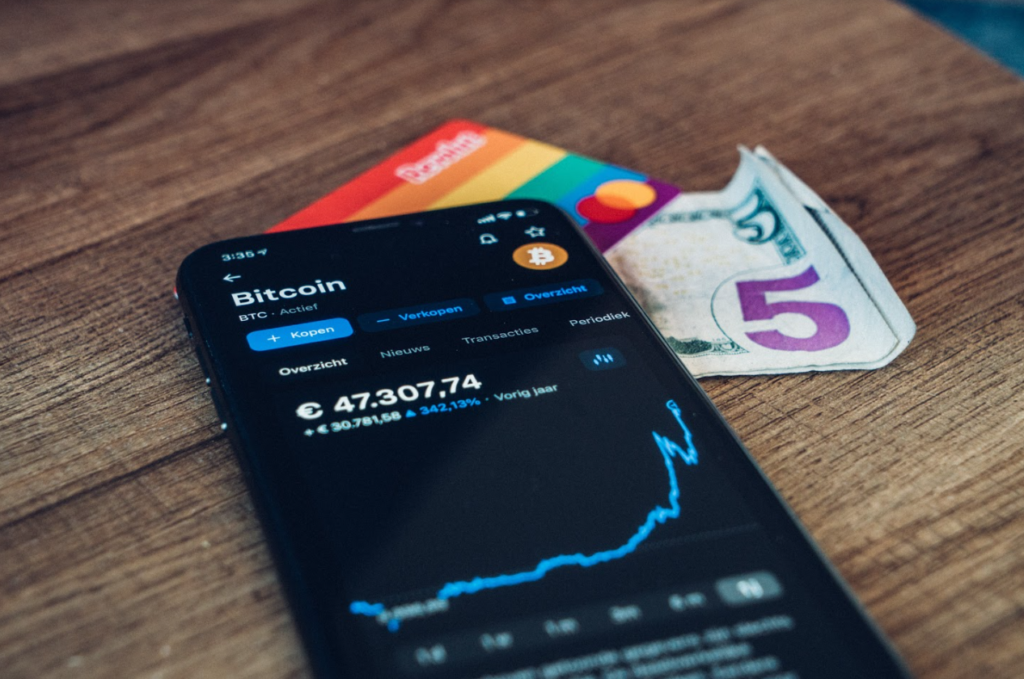Once you buy Bitcoin or any other altcoins, you will need a secure place to store them. Remember with cryptocurrencies, you are your bank and therefore have responsibility for your safety.
A Bitcoin Wallet is a kind of online bank that will allow you to manage your assets and make cryptocurrency transactions.
The best bitcoin wallets
What you need to understand here is that a cryptocurrency wallet works using 2 encryption keys, a public key, and a private key. The concept of the key comes from asymmetric key cryptography implemented thanks to the ECDSA (Elliptic Curve Digital Signature Algorithm) algorithm for those who wish to deepen the subject (if like me Maths is not your strong point, go your way advice…).
The private key is used as a signature to confirm a transaction order on the network and the public key is used when it checks whether the signature is correct. The combination of these two keys is what allows transactions to be carried out on the network.
Your public key represents your address on the Blockchain and it is this one that you will share to receive coins during your transactions.
The private key is the most important thing in securing your wallet! You must be in control of your private keys at all times and keep them out of prying eyes, which is why some wallet solutions are more secure than others. The majority of hackers use malware such as Malwares and Keyloggers, which directly attack your wallets or record what you type on your keyboard allowing them to know your passwords among other things.
In this sense, Bitcoin wallets are different from the wallets you know and use every day. Follow the guide to explore your options and learn how to create a bitcoin wallet.
Types of Wallets
- Paper wallets
- Hardware wallets (encrypted USB key type)

- Wallets on Computer or Smartphone (Hot Wallets)
- Online wallets
Here are the main types of wallets available on the market
These portfolios are ranked from the most secure to the least secure solutions:
- Physical solution (paper or material (hardware or cold wallet))
- Wallet on Computer and Smartphone (Hot Wallets)
- Online wallet
There are also two types of Computer wallets:
- The so-called light wallets. These connect to servers and verify data integrity.
- and so-called “Full-Node” wallets that store the entire Bitcoin Blockchain (book of transactions) locally on your installation (be careful, this can take up a lot of space, in hundreds of GB most often …). For those who wish to participate here in the decentralization effort.
Now let’s go into detail for each type of portfolio:
Paper wallets
It’s a really simple paper document on which you print your public and private keys and then store them in a secure place like a safe or whatever. Using QR codes saves the hassle of typing those rather long keys each time with a simple scan.
The main advantage of the paper wallet is that your keys are stored “offline” and it is therefore impossible to be the victim of a cyber attack on them.
The main drawback of this approach lies of course in the fragility of the paper medium and its lack of longevity. It is also impractical and risky to travel with your piece of paper to make payments.
This is an ideal solution for “large” carriers who wish to secure their “offline” assets. Crypto-currency exchanges generally use this kind of solution to protect themselves from hackers and keep part of the funds in “cold storage”.
Hardware wallets (encrypted USB key type)
This solution is one of the most secure because these devices that look like USB keys are made to allow you to secure your corners while allowing you to transport them securely.
Here you will need to connect your wallet to a computer or tablet to be able to access your corners.
The most well-known and reputable models today are:
- Ledger Nano S
- Ledger Nano X
- Trezor
- Keepkey
These hardware-type wallets provide a great secure and reliable storage solution for anyone serious about protecting their cryptocurrency investment.
They allow you to transport your coins while keeping your private keys in an offline environment thus limiting the risk of attack.
The only way to steal your coins here is to physically get hold of your wallet which is encrypted and protected with a password.
They are even equipped with a system allowing you to restore your digital currencies via a backup code, which even protects you from the theft or loss of your wallet.
Advantage of hardware wallets?
- One of the most secure ways to protect your electronic currencies!
- Save your private keys “offline” safe from hackers.
- Resistant to malware and viruses
- Different security levels with Pin and Recover Phrase
- Allows you to carry a bunch of cryptocurrencies with you
Disadvantages of hardware wallets?
- They are not cheap! But hey, even if it means investing as much to protect yourself in my opinion.
- They are not necessarily the most practical way to pay on the go and for daily use (the Trezor is better in this sense than the Nano S with its smartphone adapter). They are more suited to storing cryptocurrencies.
- Best to install on a “clean” computer at first.
Wallets on Computer or Smartphone (Hot Wallets)
These are electronic wallet software where the private keys are secret codes. As these keys are present on a device that is connected to the internet (most of the time), these private keys are potentially at risk and are not one hundred percent secure!
Advantage of hot wallets?
- Perfect for storing small to medium amounts of coins.
- Easy to use (often thanks to their integrated QR code reader).
- Super simple and fast sending and receiving payments. Convenient when you are on the move / on the go.
- Some hot wallet models allow access to your cryptocurrencies from multiple devices and even have integrated exchanges (Like Exodus for example).
- Possibility to save your private keys.
- Exodus office wallet
Disadvantages of hot wallets?
- Not secure enough (especially Smartphone versions) for storing large amounts of crypto.
- If you lose the device, you will lose your currencies (unless you have saved the seeds).
- Potentially hackable from a distance.
- Simply put, a hot wallet is an office or pocket wallet that is used to hold small to medium amounts of currency, but not all of your money either. They are really handy if you trade regularly, but are not the best option for storing large amounts of coins.
Online wallets
Online wallets are also called web or cloud wallets. They are easy to use as they can be viewed from any device connected to the Internet.
However, this type of wallet has many security holes and is the least secure on my list. I do not recommend them to store your coins because I would not trust a third party to protect my private keys …
I differentiate between online wallet services (which I have never used and which I don’t trust at all) and in-exchange wallets that we buy currencies on (and yes those marketplaces, like Bittrex for example, very often do not transfer your currencies directly to the wallet of your choice but to a wallet integrated into your account. You then have to transfer your funds to the wallet of your choice for a few fees in the process).
Advantage of online wallets?
- Ease of use

- Accessible from any internet connection
- Online wallets are generally linked to exchanges
- Convenient if you trade
- protect your private keys
Disadvantages of Online Wallets?
- You do not have control over your private keys which are recorded and stored on someone else’s server.
- More prone to hacking.
- Technical failures can occur and the sites are sometimes inaccessible (DDOS attacks).
- The site may limit or suspend your account at any time for any reason.
- The site has full control over your currency.
A word of advice instead sees online marketplace wallets as quick transit wallets once you’ve purchased cryptocurrency!
What type of portfolio is best for you?
Now that you better understand the security issues and the different types of wallets available as well as their respective advantages and disadvantages, you will have to make a choice!
We can now list which type of wallet is best suited for a given type of use:
- Small and frequent transactions: online wallets or hot wallets.
- Medium amount transactions: hot wallet type wallets (rather computer, be careful with smartphones)
- Online exchange when buying currencies: Online wallet (but only the amount you invest with).
- Large transactions: a hardware wallet
- Storage only: hardware or paper wallet
I even recommend that you don’t keep all of your coins in one wallet. Don’t put all your eggs in one basket! Wallets other than hardware are often free, you would be wrong to deprive yourself of them.
If you make “public” exchanges with your public key (especially on the internet), use “disposable” wallets so that your transactions cannot be traced! Contrary to many misconceptions circulating on the web, the Bitcoin Blockchain does not offer you that much anonymity and your transactions are technically visible in a public ledger …
Also, keep your currencies in online or software wallets only when you need to frequently send or receive payments. Keep only the amount you usually need and keep the rest of your inventory in a more secure wallet.
You already have a secure wallet. Which wallet are you using? What are the advantages and disadvantages?

